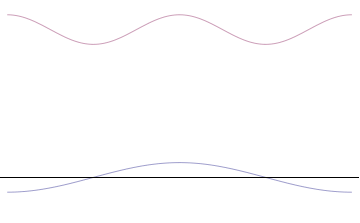Today (February 1, 1976) is the Memorial
Day of Nobel laureate Werner Heisenberg, who invented the Heisenberg theory of
Uncertainty, which created quantum mechanics.


Werner Heisenberg was born on December 5, 1901 in Würzburg, Germany. The father was a Greek linguist and Greek historian. Schoolteacher and former university professor. Werner, who attended the Max Millan School in Munich, impressed teachers with his mathematical prowess. Studied physics at the University of Munich. He joined the University of Cottingham to study physics with world-renowned physicist Max Born. He received his doctorate from the University of Munich by submitting a dissertation on hydrodynamics. He joined the University of Gottingen as an assistant to Max Bourne. Rockefeller received a scholarship to study physics at the University of Copenhagen for one year. At the age of 26, he was appointed professor of theoretical physics at the University of Leipzig.


Kaiser Wilhelm is a professor of physics at the University of Berlin and a director of the Physics Institute. On special invitation, he lectured at scientific institutes and universities in the United States, Japan, the United Kingdom, and India. His lectures were compiled and published as a book. He is hailed as one of the inventors of quantum mechanics. Using this theory it was possible to find alternative forms of hydrogen morphology. Engaged in research on quantum field theory. He also studied nuclear theory. Heisenberg discovered the theory of Uncertainty, one of the main principles of modern physics. He found a way to create quantum mechanics based on matrices. For this, he received the Nobel Prize in Physics in 1932. He was then 31 years old.



He has made significant contributions to the hydrodynamic principles of turbulent flows, including co-atomic particles, nuclear nuclei, magnetism, and cosmic rays. Referred to as one of the designers of micro-electric mechanics. Zeeman also explored the effect in detail. In 1925 he co-authored a team formulation for Satyagraha Statistics. He was also a great philosopher. He is also a good writer. He has authored more than 600 research papers, philosophical essays, and other general topics. These were all compiled and published in 9 volumes. He has lectured extensively on a variety of disciplines, including theoretical physics.




He played a key role in developing and restructuring science and research in post-war Germany. Has won numerous medals and prizes. He was awarded a doctorate by several universities. He was elected an Honorary Member of various scientific organizations not only in Germany but also in Prussia, Romania, Norway, and Spain. Heisenberg is best known for his discovery of the theory of indeterminacy, one of the central principles of modern physics, and for his contribution to the development of quantum mechanics. Considered one of the greatest physicists of the 20th century, Werner Heisenberg passed away on February 1, 1976, in Munich, Germany at 74.
Source By: Wikipedia, Hindutamil
Information: Dr. P. Ramesh, Assistant Professor of Physics, Nehru Memorial College, Puthanampatti, Trichy.
Get information like this
https://t.me/joinchat/jpqj3jQLN51kYTk9
Join Telegram Group.
https://chat.whatsapp.com/FisIzCe4Br2CRgxAiicUnf
Join WhatsApp Group
Thanks.
Also, Read
🛑👍 CSIR-NET Physics Materials and Problems
🛑📕 21 GB and Hundreds of Physics E-Books Collection.
🛑🛥️ How does an Electric Motor work? (DC Motor).
🛑🤹♂️ Science Academies' Summer Research Fellowship Programme for Students and Teachers 2022.
🛑🔌 How does a Transformer work - Working Principle electrical engineering.
🛑🎙️ Transistors Explained - How transistors work.
🛑🔥⚡ How Thermocouples Work - basic working principle.
🛑🔌 Voltage Explained - What is Voltage? Basic electricity potential difference
🛑🔌 What is CURRENT– electric current explained, electricity basics.

.png)
.jpg)
No comments:
Post a Comment